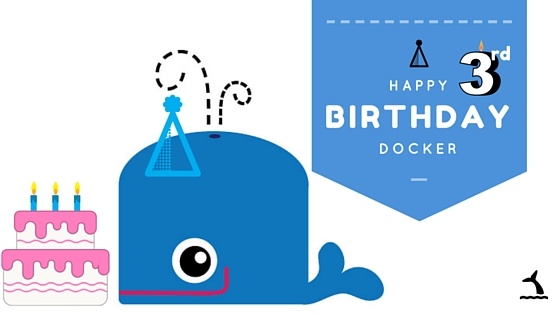Docker is but a 3-year-old toddler, but this toddler seems to be on steroids… growing at a pace reminiscent of Species (not that Moby Dock would ever turn into Natasha Henstridge, or start seeking humans to mate with!)
At the tender age of 3, not only is Docker -- both the open source project and the company behind it -- growing faster than many technologies the preceded it, but it is fostering a vast ecosystem of technologies and vendors that are creating a groundswell of adoption.
This ecosystem encompasses not only start-ups like Scalock, but also many of the key players in cloud services, development environments, Linux, and virtualization. Consider also that the Open Container Initiative – a collaboration of 40 leading tech firms, including Google, IBM and Scalock too – is using a Docker draft specification to create common standards for the format and runtime of containers.
The Whale in The Room: Enterprise Adoption
So the supply side of the market is gearing up, but the key question that remains is whether enterprise adoption is happening on a large scale, and in production - as Docker CEO Ben Golub recently claimed.
There is supporting evidence in the media and among analysts that Docker is in fact already being adopted by enterprise customers, or at least is making its way there sooner rather than later.
Don Duet, co-head of the Goldman Sachs group’s technology division, told The Wall Street JournalThe Wall Street Journal that Goldman Sachs is putting almost all of its software in Docker. “Containers were not something on people’s minds until maybe late 2014 or early 2015. Now they are in vogue,” Duet said.
An Oracle/StackEngine survey last year of the VMblog and CloudCow communities found that 70% of enterprises were using Docker or considering using it. Also last year, a DataDog survey of 7,000 companies reported that two-thirds of the enterprises that tested Docker eventually adopted it, though it’s hard to tell on what scale and whether in production or dev/test only.
Is It Real or Just Spin?
Skeptics would claim that surveys can be manipulated to give you any result you want, and that a few drops do not a deluge make. True. However, our own experience in the market to date gives us reason to believe that widespread enterprise adoption is unavoidable and imminent. Here’s why:
- It’s not just the numbers, but who is adopting: While this is still an early adopter market, with nowhere near the adoption numbers of, say, VMWare, the early adopters are significant players - not small tech start-ups or web companies only, but major, traditional, Fortune 500 enterprises such as banks, government and industrial companies.
- Some companies are already in production, while others have firm plans with timetables to be in production with containers within 12-18 months. They are aware of the various challenges but are determined to solve them and deploy - or sometimes deploy first, solve later.
- The move from dev/test to production is inevitable: Once organizations see the cost and agility benefits of using containers in their application development environments, porting that architecture into production is almost a foregone conclusion. Not doing so is akin to investing in a Ferrari, then retrofitting it with a 100cc engine. Why would anyone do that? Sure, there might be technical challenges and security concerns, but they are solvable and I would argue that they can at most delay, but not prevent, the move to production.
I am intrigued to see how the Docker market will evolve, and even more so to do our part in helping Docker along by removing many of security obstacles to enterprise adoption.


